What are the 6 pillars of the AWS Well-Architected Framework?
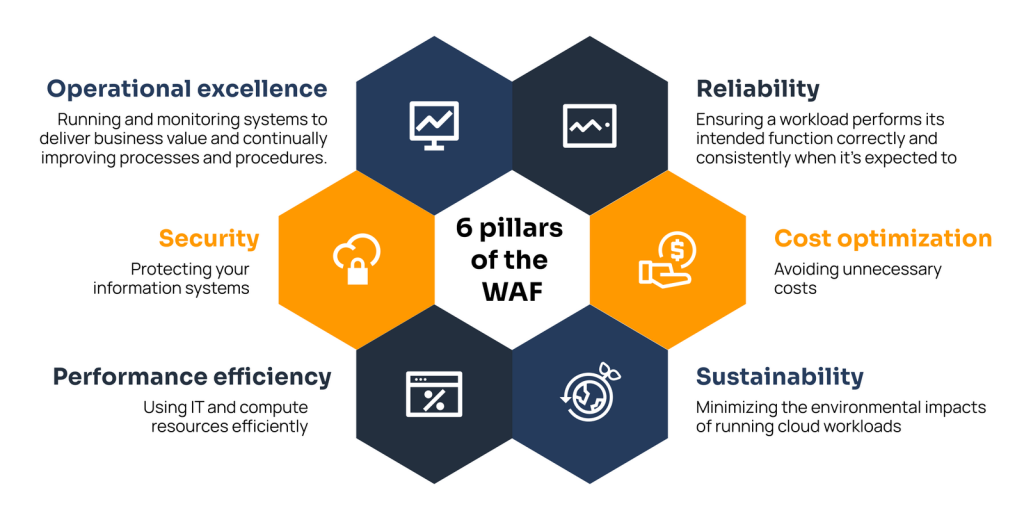
What is the AWS Well-Architected Framework?
The AWS Well-Architected Framework (WAF) is a set of best practices, design principles, and architectural guidelines created by Amazon Web Services to help cloud professionals build secure, efficient, reliable, and cost-effective applications in the AWS Cloud.
It provides a structured approach to evaluate your architecture and identify areas for improvement.
Whether you are a beginner or an experienced cloud architect, understanding this framework ensures your cloud systems perform optimally.
The AWS Well-Architected Framework is built on six key pillars:
1. Operational Excellence
Focuses on monitoring systems, automating processes, and improving workflows.
Best Practices:
- Use Infrastructure as Code (IaC) for consistency.
- Automate deployments with AWS CodePipeline or CloudFormation.
AWS Services: CloudWatch, CloudFormation, AWS X-Ray
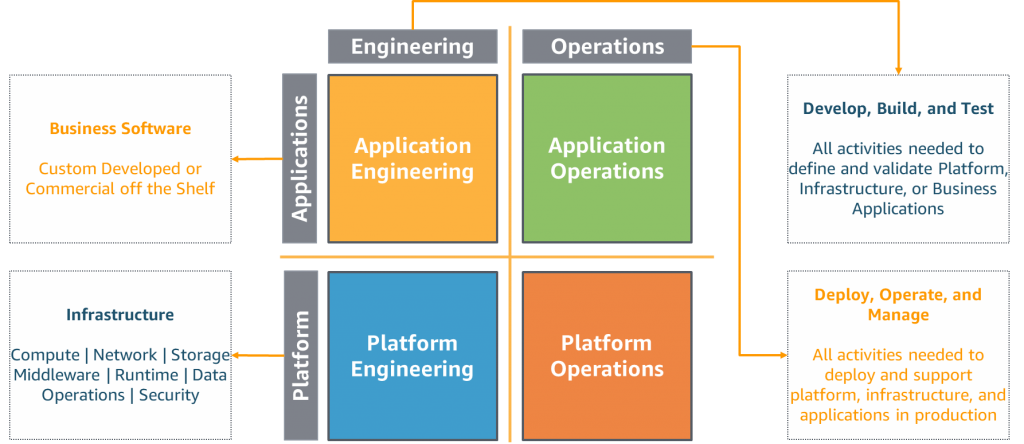
2. Security
- Implement the Principle of Least Privilege (PoLP).
- Enable multi-factor authentication (MFA).
- Use AWS Key Management Service (KMS) for encryption.
AWS Services: IAM, KMS, CloudTrail, AWS Config
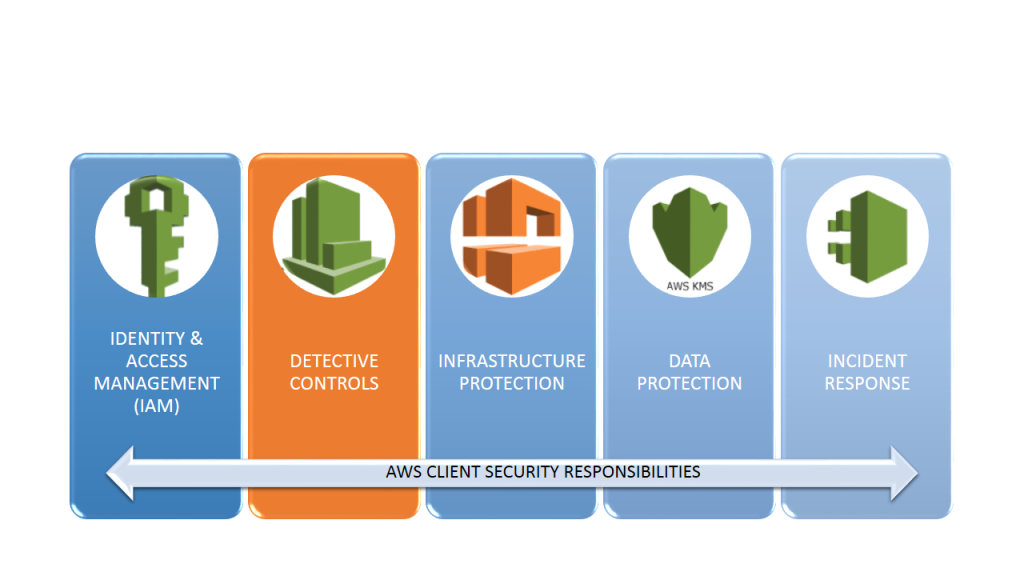
3. Reliability
Ensures workloads perform correctly under any circumstances.
Best Practices:
- Design for failure using multi-AZ (Availability Zones).
- Automate recovery processes.
AWS Services: Route 53, Auto Scaling, AWS Backup
4. Performance Efficiency
Maximize resource efficiency and improve performance based on workload demands.
Best Practices:
- Use Elastic Load Balancing to distribute traffic.
- Optimize with Amazon CloudFront and AWS Global Accelerator.
AWS Services: CloudFront, EC2, Lambda, Amazon S3
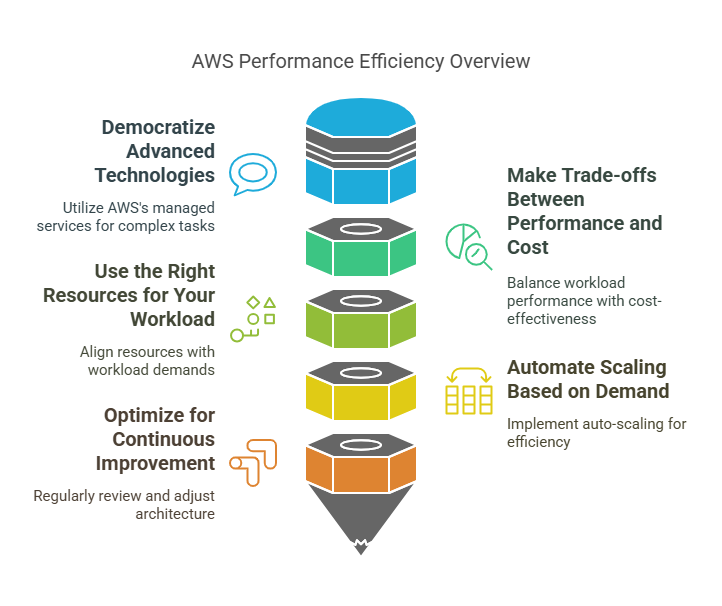
5. Cost Optimization
Helps reduce unnecessary expenses while maximizing cloud efficiency.
Best Practices:
- Right-size your EC2 instances.
- Use AWS Cost Explorer and Savings Plans.
AWS Services: AWS Budgets, Cost Explorer, Trusted Advisor
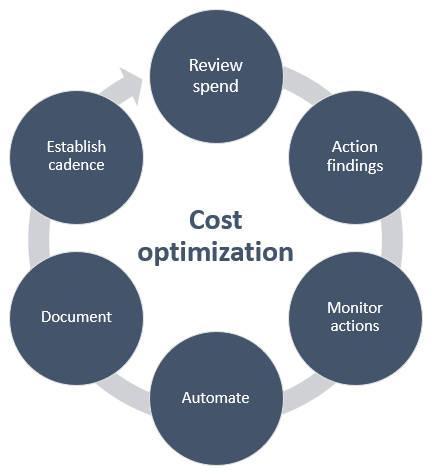
6. Sustainability
Focuses on minimizing environmental impact through efficient resource use.
Best Practices:
- Use serverless computing (AWS Lambda).
- Reduce idle resources and carbon footprint.
AWS Services: Lambda, AWS Compute Optimize
Benefits of the AWS Well-Architected Framework
- ✅ Improved Security – Protect data and ensure compliance.
- ⚡ Enhanced Performance – Optimize workloads for speed and scale.
- 💰 Reduced Costs – Identify and eliminate waste.
- 🔁 Continuous Improvement – Regular reviews keep your architecture healthy.
How to Implement the Framework
- Assess your architecture using the AWS Well-Architected Tool
- Identify risks and improvements across each pillar.
- Apply AWS best practices using automation and monitoring tools.
- Continuously review and refine your architecture.
Key Takeaways
- The AWS Well-Architected Framework is essential for every cloud architect.
- Focus on the six pillars to ensure your system is secure, reliable, and cost-efficient.
- Use AWS tools and automation to maintain operational excellence.

